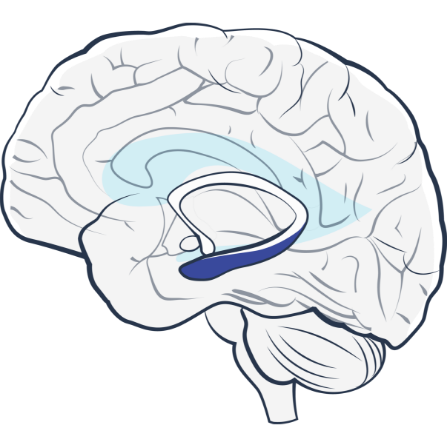
Some Mesial Temporal Onset Seizures are Difficult to Treat
- Bilateral Mesial Temporal (MTL) cases, where surgical resection is not an option
- Dominant Unilateral MTL cases, where risk of cognitive deficits may be unacceptable to the patient
- When lateralization information is discordant and long-term data is needed to guide the surgical plan
How the RNS® System can help

without cognitive deficit1
The RNS System enables patients to preserve cognitive function while also achieving substantial seizure reduction, making treatment possible for those who may not be good surgical candidates.
Read about MTL Patient Outcomes with the RNS System
![]()
with real world iEEG data2,3
Using the RNS System before resection gives you long-term EEG data to inform seizure lateralization. This may help identify surgical candidates and improve outcomes.

“My seizures came from both hippocampi, so I wasn’t a surgery candidate. The device gained control over seizures on the left side of my brain.
After reviewing the data my doctors realized that the majority of my seizures were coming from the right side. So, they decided that I could have surgery to remove the right side of my hippocampus.”
Erick
RNS System patient since 2009, whose seizures
originate in both hippocampi.*
MTL Case Studies
1. Geller, et al., Epilepsia, 2017. 2. King-Stephens et al., Epilepsia, 2015. 3. Hirsch, et al., Epilepsia, 2020.
*Every individual’s seizures are different and results will vary.


